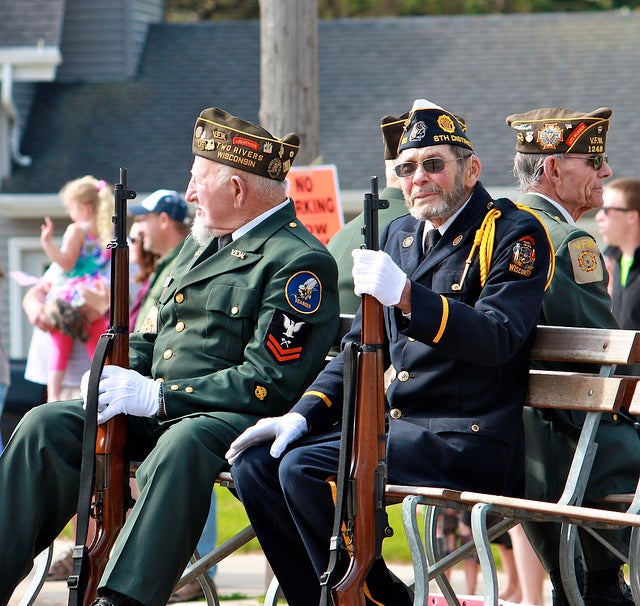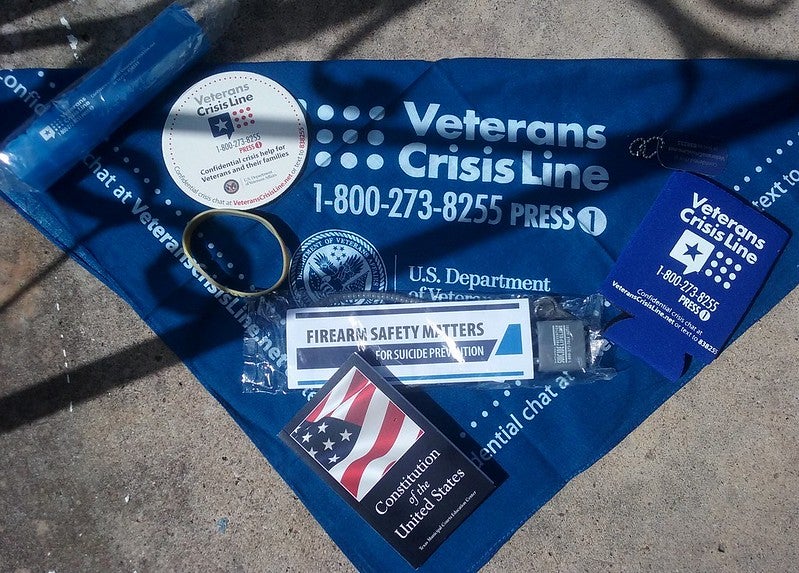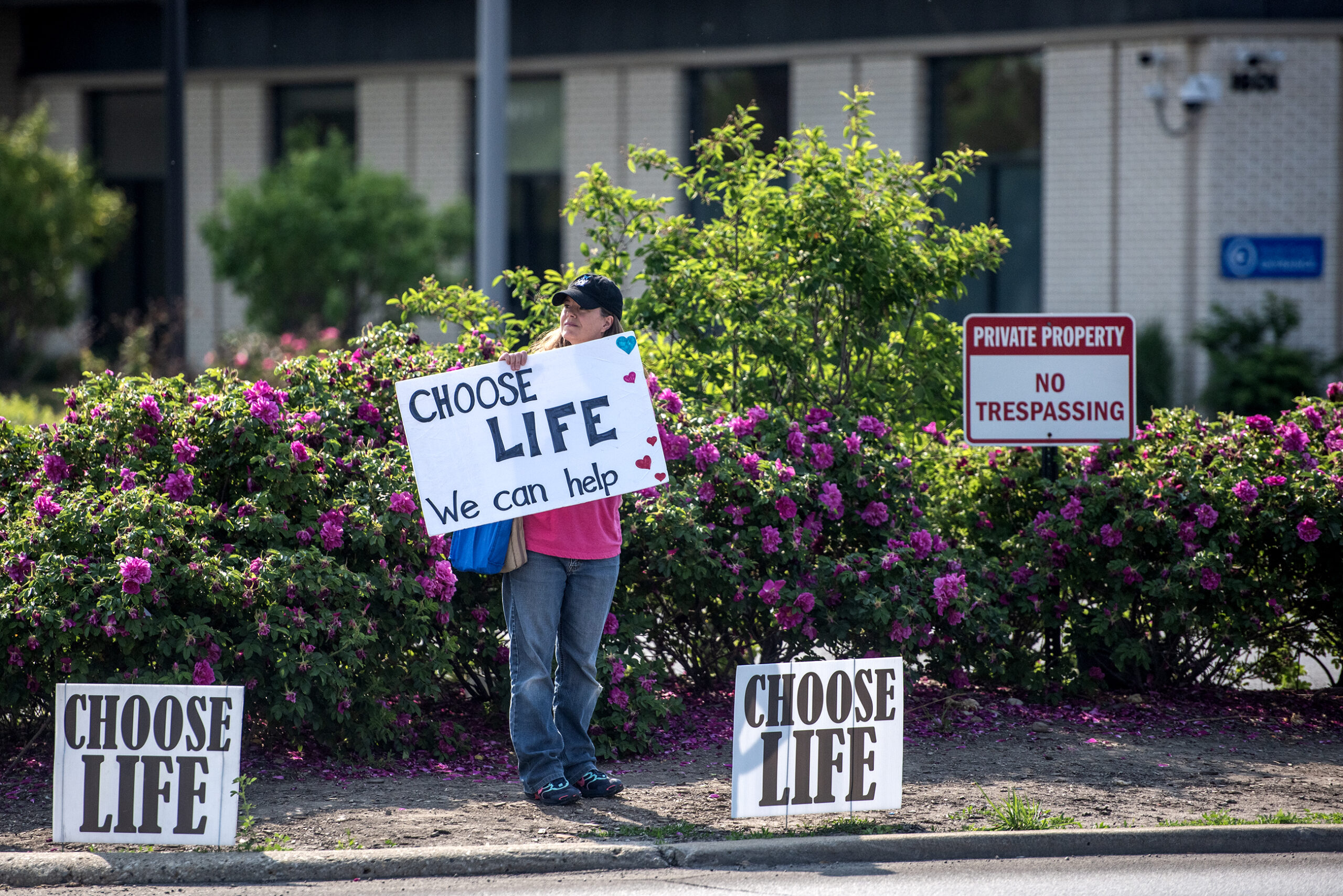Linda Ledbeter’s newest foster dog was completely shut down. Renamed Josie after being rescued from a kill shelter, she had to be carried out of the car, up the steps and into Ledbeter’s home near Plymouth.
Josie, a lab mix, had a deformed tail, and so did about half of her puppies. They all were rescued from the shelter.
So, when Pam Wittkopp stood in Ledbeter’s living room and told her Josie would be a great candidate for her organization — Dogs2DogTags — Ledbeter was understandably cynical.
Stay informed on the latest news
Sign up for WPR’s email newsletter.
Dogs2DogTags is an organization based in Sheboygan Falls that matches veterans with dogs from rescues and humane societies or through donations. The dogs go through a monthslong training process where they’re taught how to help veterans with mental illness.
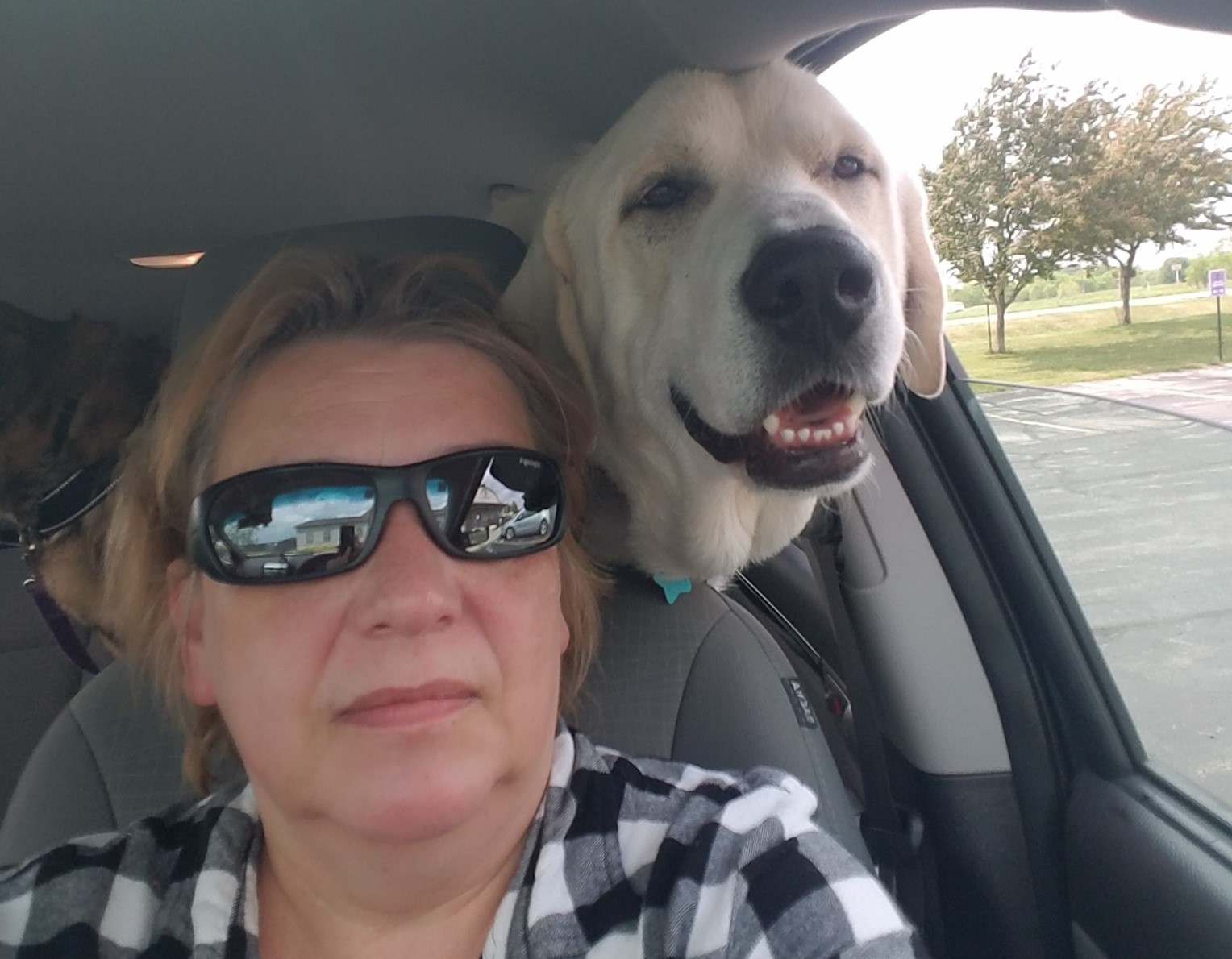
“(The veterans are) dealing with night terrors, they can’t eat, loud noises scare them,” Wittkopp said. “The dog just stops that.”
As executive director of Dogs2DogTags, Wittkopp has seen her fair share of dogs transformed through the training process. But the changes in veterans who bond with these dogs are just as stark.
“I honestly don’t know where I would be without him right now because of the stuff that I was going through recently,” said Ric Daus, 35, a veteran who has had to manage anxiety, depression and post-traumatic stress disorder after returning from service in Bagram, Afghanistan.
Traumatic Events
Daus completed one tour in Afghanistan from about March 2005 until May 2006. He worked as a light equipment operator, licensed to operate and work on all-wheeled U.S. Army vehicles. His tasks included clearing and building roads, clearing areas of landmines and resupplying bases.
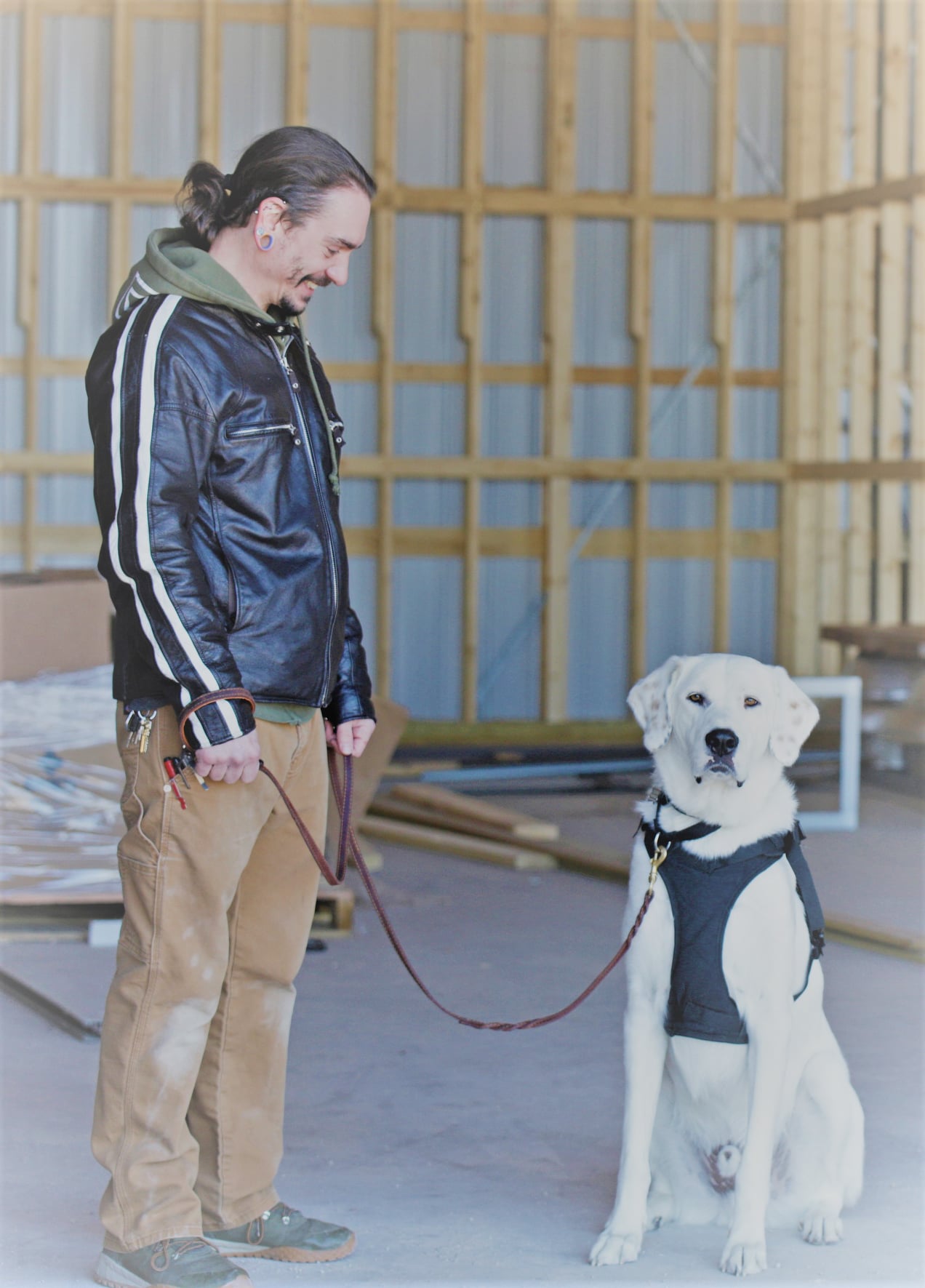
On one mission, Daus’ unit was assigned to find a way to expand a road through a mountain pass between Islamabad, Pakistan and Jalalabad, Afghanistan in the northeast sector, which Daus called a “really bad area.” The pass was wide enough for vehicles to get through, but not wide enough to turn around.
“Our mission was to go out there to see where we could expand into the mountain to get this pass bigger so that these vehicles that kept getting attacked or blown off the mountain wouldn’t anymore,” he said.
But the humvees that were dispatched were too wide and were forced to back up.
“I was taken off the mission at the last minute and someone else went instead and my humvee got blown off the mountain,” he said. Four people died, including the man who went in Daus’ stead who was engaged and had a child.
“I didn’t have a kid at the time,” Daus said. “That made me feel like s—.”
Being shot at, losing friends and being rocketed and mortared on several occasions left Daus with feelings of resentment, anger, anxiety and PTSD. He tried to seek help when he returned home, but said he waited for months and no follow-up recommendations were made for his treatment.
Daus turned to alcohol and drugs temporarily. He went back to school, but challenges resurfaced while in a “physically and mentally abusive” relationship, he said.
“Then, I got this, this golden ticket — I don’t know, this calling from above — a friend of mine told me about (Wittkopp) and Dogs2DogTags,” he said.
A Tight Bond
Daus was matched with his dog Patton late last year, one of 28 dogs who have been placed with veterans since the operation began in 2015.
Patton is a great Pyrenees mix with dalmatian who made his way to Wisconsin from a Texas kill shelter. He was afraid of his kennel and didn’t like people.
“Dogs2DogTags mostly got like all of it out,” said Daus, from New Holstein. “He loves people now. He is so in tune with me that the first time we met, he was leaning on me. He already knew that he loved me. It just seemed like he knew that we were meant to be together.”
Torre Willadsen saw that direct emotional impact that dogs had on soldiers while he was in Afghanistan in 2012. He was there helping train officers on how to handle dogs in search of roadside bombs.
One of the soldiers who sustained a serious injury from an improvised explosive device woke up after 10 days and immediately asked for his dog, recalled Willadsen, founder and president of Dogs2DogTags.
“My fight to get him his dog that he deployed with then turned into (wanting) to try to get the dogs to the rest of the guys,” he said.
But then, after the battalion he worked with returned home, suicides started becoming more prevalent among veterans. The suicide crisis affecting veterans claimed 115 lives in Wisconsin in 2018, according to the most recent report from the U.S. Department of Veterans Affairs. Nationally, 6,435 veterans died by suicide in 2018.
“When a veteran is thinking about that final act, we want them to see their dog,” Wittkopp said. “We want them to remember the community that supported them and know that they have a reason to give it another day.”
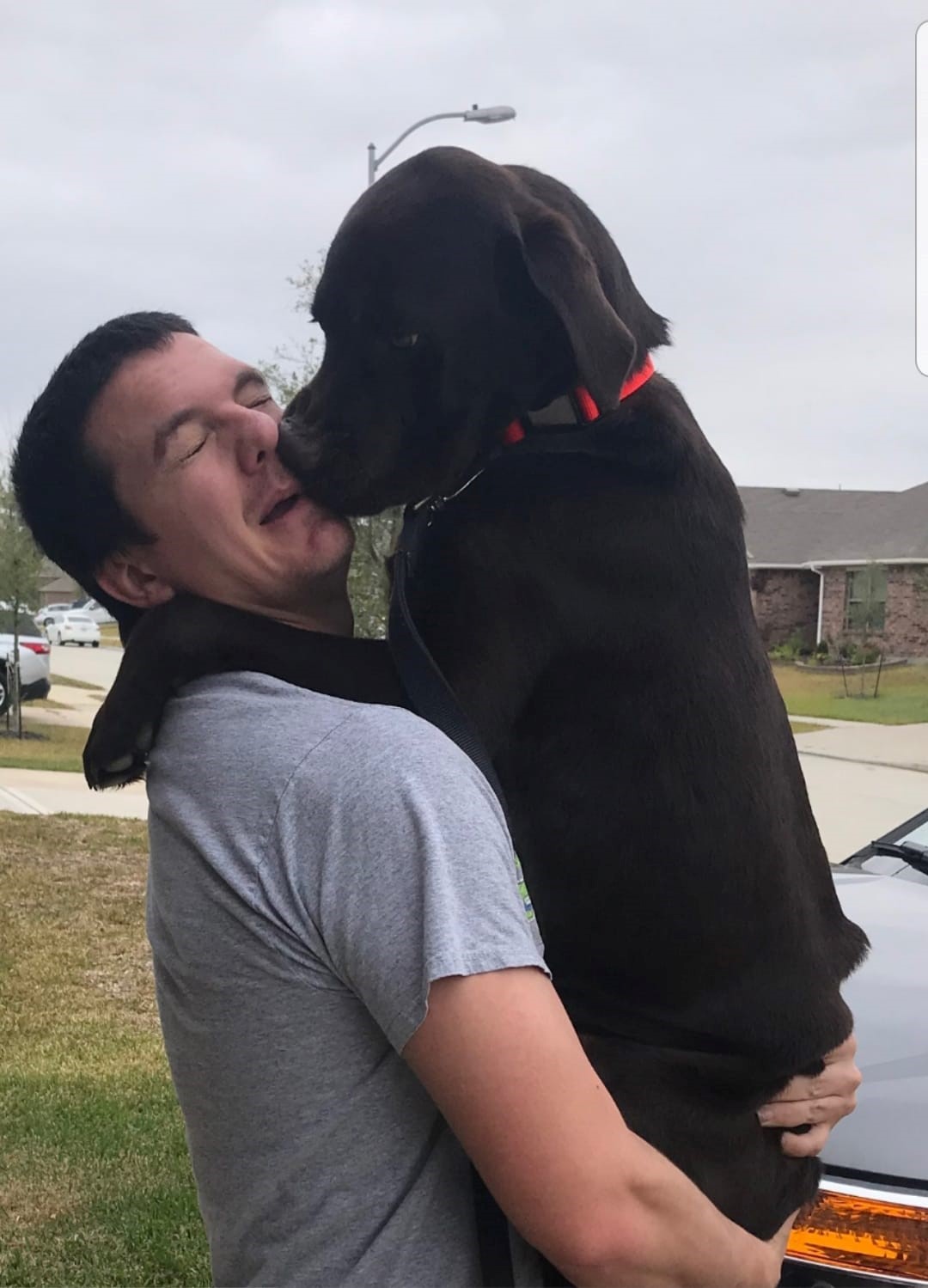
Recalling the impact the dogs had on the veterans while overseas, Willadsen was hopeful that pairing stateside veterans with dogs could help. Dogs2DogTags was born.
Working With The Dogs
Willadsen said there are certain characteristics and personality traits that make some dogs more suitable for the program. Dogs with a history of biting aren’t considered.
“When we find an animal that works out, we train them through it,” he said. “He goes through our certification while we’re looking for a veteran.”
Size of the dogs is more varied. Willadsen said the program has trained small pitbull mixes that are about 35 to 40 pounds. Another dog currently in training, Oliver, is about 100 pounds.
Once the dogs are matched with their veterans, the organization continues to provide support. Dog food is paid for, for a year. Medical expenses are completely covered and the organization will shelter the dogs if the veterans are having a difficult time or if they are going on vacation, for example.
“The dogs need to be well taken care of, so they can take good care of their veterans,” Ledbeter said.
Dogs2DogTags is in the process of raising funds for a kennel and training facility. Without a facility right now, the dogs are cared for by foster families during nights and on weekends. The dogs are trained during the day.
“We train our fosters on how we want them to train the dogs, as well,” Wittkopp said.
Dogs are in training anywhere from 18 weeks to eight months. Three dogs are in training now, but Wittkopp said having a training and boarding facility would increase that substantially.
Veterans interested in the program can apply online.
Wisconsin Public Radio, © Copyright 2025, Board of Regents of the University of Wisconsin System and Wisconsin Educational Communications Board.

